Best movies like The East Is Red
A unique, carefully handpicked, selection of the best movies like The East Is Red Starring Wang Kun, Tseten Dolma, Hu Song Hua, Guo Lanying, and more. If you liked The East Is Red then you may also like: Yellow Earth, Youth, The Red Menace, Assembly, The Battle at Lake Changjin and many more popular movies featured on this list. You can further filter the list even more or get a random selection from the list of similar movies, to make your selection even easier.
Pre-Cultural Revolution propaganda at its most lavish, this model opera depicts the history and evolution of the Communist Party of China under Mao Zedong from its founding in July 1921 to the establishment of "New China" in 1949. Detailed in the musical are several key events in CPC history such as the Northern Expedition, the KMT-led Shanghai massacre of 1927, the Nanchang Uprising and formation of the People's Liberation Army, the Long March and the founding of the PRC on October 1, 1949.
You may filter the list of movies on this page for a more refined, personalized selection of movies.
Still not sure what to watch click the recommend buttun below to get a movie recommendation selected from all the movies on this list
The Red Menace
A couple try to leave the Communist party after a murder by the group they were once loyal to.
The Battle at Lake Changjin
Korean War, winter 1950. In the frozen and snowy area of Changjin Lake, a bloody battle is about to begin between the elite troops of the United States and China.
Seven Years in Tibet
Austrian mountaineer, Heinrich Harrer journeys to the Himalayas without his family to head an expedition in 1939. But when World War II breaks out, the arrogant Harrer falls into Allied forces' hands as a prisoner of war. He escapes with a fellow detainee and makes his way to Llaso, Tibet, where he meets the 14-year-old Dalai Lama, whose friendship ultimately transforms his outlook on life.
Cured
Mentally ill. Deviant. Diseased. And in need of a cure. These were among the terms psychiatrists used to describe gay women and men in the 1950s, 1960s, and early 1970s. And as long as they were “sick”, progress toward equality was impossible. This documentary chronicles the battle waged by a small group of activists who declared war against a formidable institution – and won a crucial victory in the modern movement for LGBTQIA+ equality.
Farewell My Concubine
Abandoned by his prostitute mother in 1920, Douzi was raised by a theater troupe. There he meets Shitou and over the following years the two develop an act entitled "Farewell My Concubine" that brings them fame and fortune. When Shitou marries Juxian, Douzi becomes jealous, the beginnings of the acting duo's explosive breakup and tragic fall take root.
In the Heat of the Sun
The film is set in Beijing during the Cultural Revolution. It is told from the perspective of Ma Xiaojun nicknamed Monkey, a teenage boy. Monkey and his friends are free to roam the streets of Beijing day and night because the Cultural Revolution has caused their parents and most adults to be either busy or away. The story revolves around Monkey's dalliances with his roguish male friends and his subsequent angst-filled crush with Mi Lan.
To Live
Fugui and Jiazhen endure tumultuous events in China as their personal fortunes move from wealthy landownership to peasantry. Addicted to gambling, Fugui loses everything. In the years that follow he is pressed into both the nationalist and communist armies, while Jiazhen is forced into menial work.
A Hill in Korea
Based on real events, A Hill in Korea charts the fortunes of a small group of British soldiers serving in the Korean War. Out on a routine patrol, the soldiers find that Chinese troop movements have cut them off from their own lines. They try to fight their way back to safety but with the enemy surrounding them on all sides, the prospects look bleak. Facing almost insurmountable odds, they decide to stand a fight.
I Wish I Knew
Focuses on the people, their stories and architecture spanning from the mid-1800s, when Shanghai was opened as a trading port, to the present day.
Mao Zedong 1949
The film is set in 1949, as the members of the Central Committee of the Communist Party of China prepare to establish a new Chinese state, the People's Republic of China.
Mao's Last Dancer
At the age of 11, Li was plucked from a poor Chinese village by Madame Mao's cultural delegates and taken to Beijing to study ballet. In 1979, during a cultural exchange to Texas, he fell in love with an American woman. Two years later, he managed to defect and went on to perform as a principal dancer for the Houston Ballet and as a principal artist with the Australian Ballet.
The Sacrifice
In 1953, the Korean War is entering the final stage. The People's Volunteer Army of China has launched the last major battle in Kumsong. In order to arrive at the battleground on time and deliver enough force to the Kumsong front line, the soldiers have to defend themselves against the never ending bombing of enemy bombers and race with time to repair bridges, all under the circumstance of supply shortages and inferior equipment. The rarely told history slowly unfolds.
Taking Tiger Mountain by Strategy
Taking Tiger Mountain was the very first model film produced during the Chinese Cultural Revolution (1966-1976). Set during the civil war in 1946, it follows a detachment of the People's Liberation Army in Mandchuria as they are fighting a group of bandits hiding in the mountains. Based on a novel from the 50s, Taking Tiger Mountain was first a revolutionary opera before being made into film by director Xie Tieli.
Traces of a Dragon: Jackie Chan & His Lost Family
A surprising look at the past of movie star Jackie Chan and the difficulties of Chinese families during the Culture Revolution.
Eternal Wave
Eternal Wave 密战 is a Chinese film set during the anti-Japanese occupation era starring Aaron Kwok, Zhao Li Ying and Zhang Han. It follows the main protagonist Lin Xiang who is a spy working underground to reestablish what was destroyed ruing the Battle of Shanghai. He meets a simple yet patriotic young lady who becomes his partner as they infiltrate the enemy as a couple. Apart from that, they cross paths with Liang Dong, a man whose motives are unclear.
Hibiscus Town
Based on a novel by the same name written by Gu Hua, a melodrama about the life and travails of a young woman who lives through the turmoil of the Cultural Revolution.
The Battle at Lake Changjin: Water Gate Bridge
In the follow-up to "The Battle At Lake Changjin", brothers Wu Qianli and Wu Wanli undertake a new task for the People's Volunteer Army, defending a bridge part of the American troops' escape route from the advancing Chinese.
The Music of Strangers: Yo-Yo Ma and the Silk Road Ensemble
Follow several talented members of the ensemble as they gather in locations across the world, exploring the ways art can both preserve traditions and shape cultural evolution.
Destination Nicaragua
Documentary about a group of Americans who go to Nicaragua to learn about the conflict between the Contras and the Sandinistas.
Operation Red Sea
A squad of the Jiaolong Commando Unit - Sea Dragon, a spec ops team of the Chinese Navy, carries out a hostage rescue operation in the nation of Yewaire, on the Arabian Peninsula, and fiercely fights against local rebel groups and Zaka, a terrorist organization.
The Eight Hundred
In 1937, eight hundred Chinese soldiers fight under siege from a warehouse in the middle of the Shanghai battlefield, completely surrounded by the Japanese army.
Faces in the Crowd
The film is a key film project for the 100th anniversary of the founding of the Party by the Propaganda Department of the Guangdong Provincial Party Committee, revealing the unknown revolutionary party history of Shantou Red Transportation Station. The film tells the story of a group of unsung heroes in Shantou who, during the period of the Agrarian Revolution, fought against the enemy with their blood and lives in the revolutionary struggle
The Founding of an Army
The Founding of an Army is a 2017 Chinese film commissioned by China's government to commemorate the 90th anniversary of the founding of the People's Liberation Army.
Zhou Enlai Returned To Yan'an
1973. Old revolutionary Zhou Enlai, elected Mao's successor, returning to the holy land of Yanan. Recalling the major historical events of the 13-year period of the Chinese revolution in the Yanan period, it showed the feelings and feelings of Premier Zhou Enlai
Lei Feng
Lei Feng (December 18, 1940 – August 15, 1962) was a soldier of the People's Liberation Army in the People's Republic of China. After his death, Lei was characterised as a selfless and modest person who was devoted to the Communist Party, Chairman Mao Zedong, and the people of China. In the posthumous "Learn from Comrade Lei Feng" campaign, initiated by Mao in 1963, Lei became the symbol of nationwide propaganda; the youth of the country were encouraged to follow his example. After Mao's death, Lei Feng remained a cultural icon symbolizing selflessness, modesty, and dedication; his name entered daily speech and his imagery appeared on t-shirts and memorabilia.
The Winter of Three Hairs
San mao (3 hairs) was a very popular Chinese comic strip first published in 1935-37, continued from 1948 into the 1990s, about a young orphan boy struggling with life in Shanghai.
Morning Sun
The film Morning Sun attempts in the space of a two-hour documentary film to create an inner history of the Great Proletarian Cultural Revolution (c.1964-1976). It provides a multi-perspective view of a tumultuous period as seen through the eyes—and reflected in the hearts and minds—of members of the high-school generation that was born around the time of the founding of the People’s Republic of China in 1949, and that came of age in the 1960s. Others join them in creating in the film’s conversation about the period and the psycho-emotional topography of high-Maoist China, as well as the enduring legacy of that period.
How to Stage a Coup
A guide to human history through its most audacious power grabs. From Julius Caesar to Napoleon; from Mussolini to the strongmen of the present day - we see how the world we know has been shaped by those who dream big.
The Founding of a Republic
The tale of one man who fought against the tyranny of a ruler and led his people in battle in the ultimate sacrifice for his country.
The Crossing II
A story of three couples and their intertwining love stories set in 1940s Taiwan and Shanghai, centered around the 1949 sinking of Taiping.
Beginning of the Great Revival
A chronicle of the events that led to the founding of the Chinese Communist Party.
Liberation
Based on real life events, the film is set in January 1949 and focuses around a group of soldiers involved in the final stages of the Battle of Pingjin
The Pioneer
The story of Li Dazhao's revolutionary deeds from 1912 to 1927, and the story of the benevolent and revolutionary pioneers who were led by him to devote themselves to the great cause of Marxism
The Birth of New China
In the spring and summer of 1949, the People's Liberation Army launched an offensive under the orders of Mao Zedong and Zhu De, they crossed the Yangtze River and Nanjing was liberated on April 23 which signaled the fall of the KMT regime, Chiang Kai-Shek fled to Taiwan; on October 1, 1949, Mao Zedong standing on the rostrum of Tiananmen, solemnly declared the foundation of the People's Republic of China.
The Red Detachment of Women
A filmed 1970 performance of the China Central Ballet Troupe. Adapted from the film of the same title, The Red Detachment of Women was first staged in Beijing in 1964 and was one of the Eight Model Operas which dominated the national stage during the Cultural Revolution.
The Great Military March Forward:Engulf the Southwest
In the later stage of the Liberation War, with the victory of the three major battles over, the Central Committee of the Communist Party of China and Chairman Mao Zedong made strategic decisions, ordering Liu Bocheng (played by Fu Xuecheng) and Deng Xiaoping (played by Lu Qi) to lead a group of the Second Field and Fourth Field to advance towards Hunan, Hubei, Guizhou, and Sichuan, and annihilate the remaining enemies in the southwest. On his way south, Deng Xiaoping asked railway experts he met about the construction of the Chengdu Chongqing Railway and gave political education classes to the troops heading south in a timely manner, implementing Chairman Mao's great teachings of "carrying out the revolution to the end"...
The Eternal Wave
An underground CPC telegrapher, Li Xia, fights against the Japanese enemy and dies before the eve of Shanghai's liberation in 1939.
Soldier in White
A heroic People's Liberation Army nurse continues caring for wounded and getting them safely to hospital even though she has been wounded.
From Mao to Mozart: Isaac Stern in China
A beautiful expression of two differing cultures brought together by the warmth and dedication of a great musician and humanitarian. In 1979, as China re-opened its doors to the West, virtuoso Isaac Stern received an unprecedented government invitation to tour the country. Preserved by the Academy Film Archive in 2000.
Hollywood on Trial
A detailed look at the events leading up to the blacklisting of Hollywood writers and artists. In October 1947 nineteen Hollywood personalities were subpoenaed by the House Committee on Un-American Activities to testify about their knowledge or possible involvement in the American Communist Party. The first ten to be called refused to cooperate, claiming their first amendment rights, were cited for contempt of Congress and sent to prison. They became known as the "Hollywood Ten" and this is their story.

































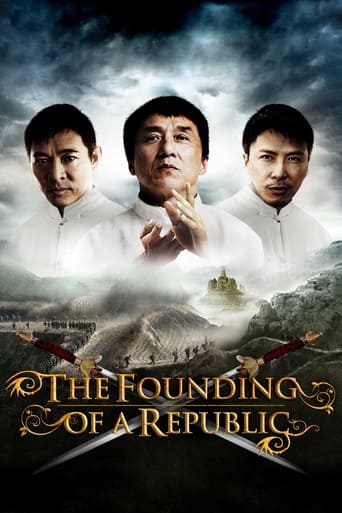














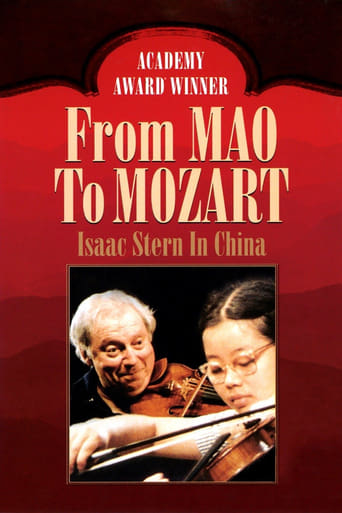
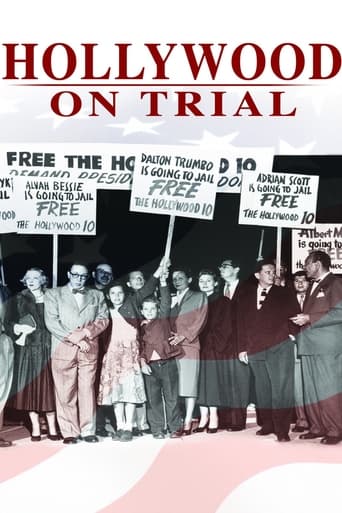
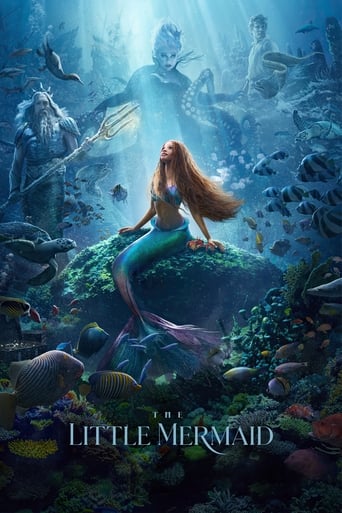
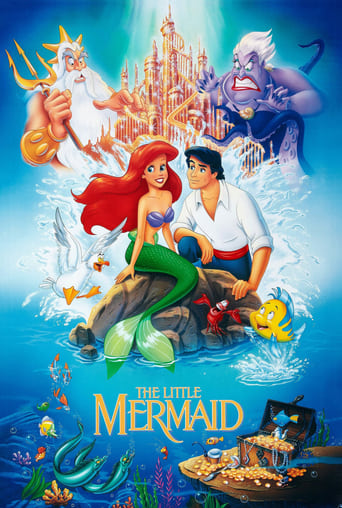
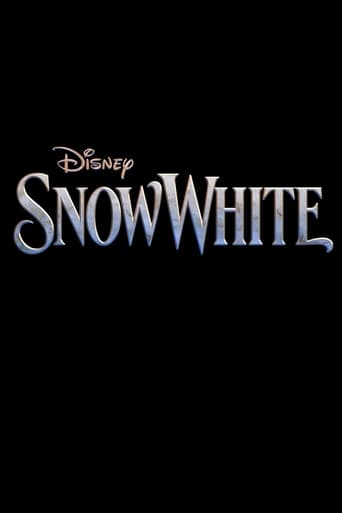
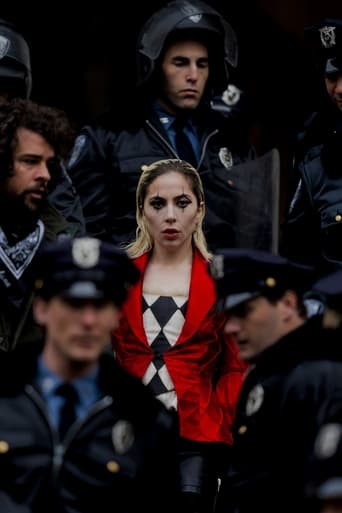
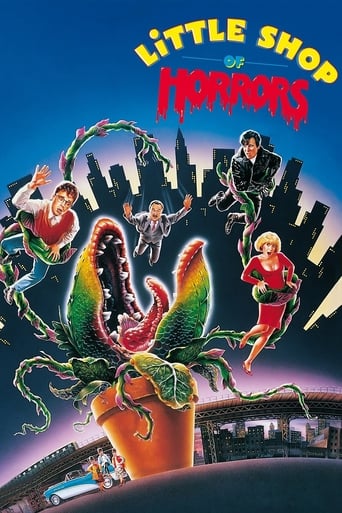
Yellow Earth
A Communist soldier is sent to the countryside to collect folk songs for the Communist Revolution. There he stays with a peasant family and learns that the happy songs he was sent to collect do not exist; the songs he finds are about hardship and suffering. He returns to the army, but promises to come back for the young girl, Cuiqiao, who has been spellbound by his talk of the freedom women have under Communist rule and who wants to join the Communist Army.